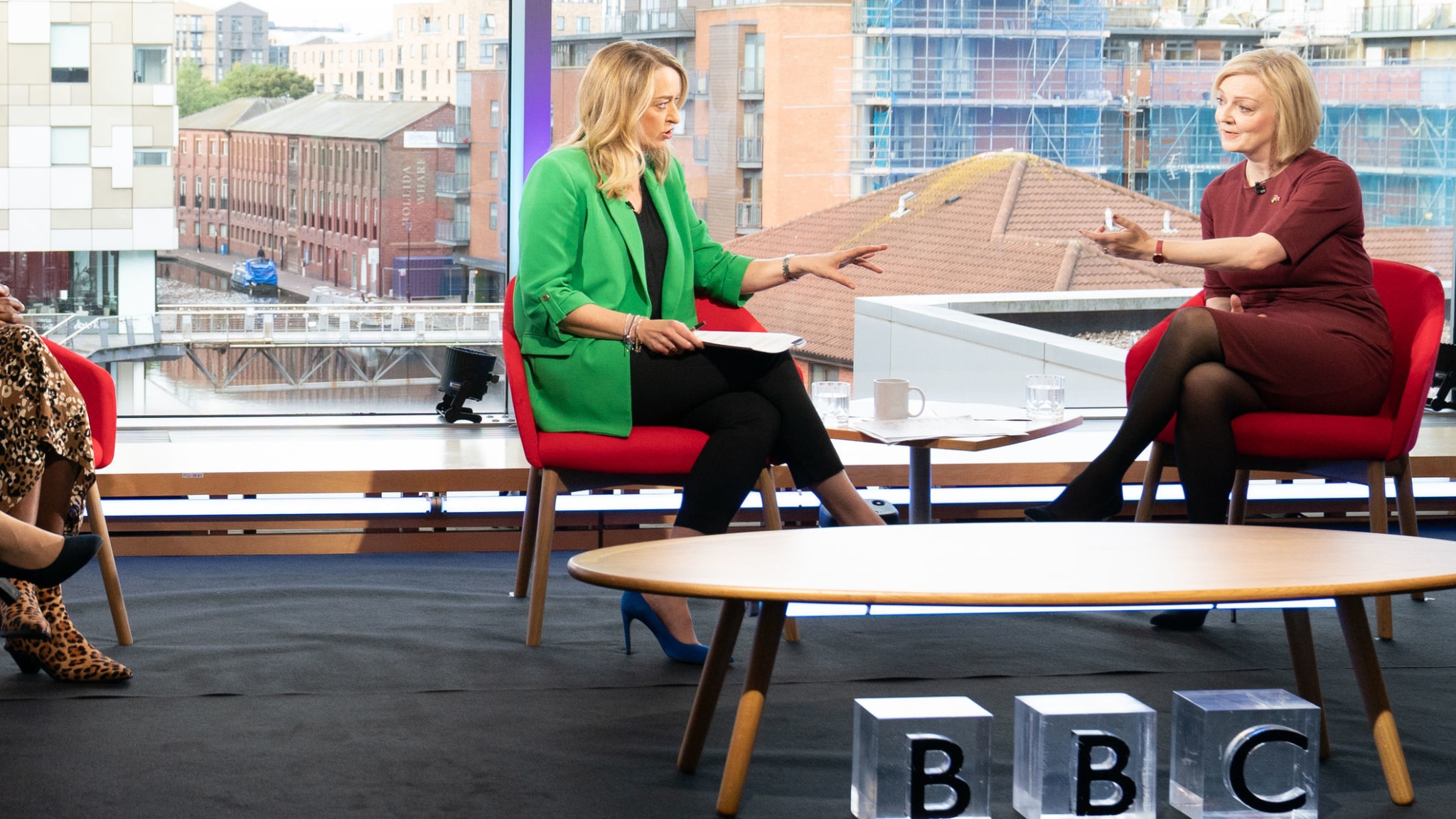British Prime Minister
Liz Truss
said in an interview with the
BBC
today that she could have
done a better job "setting the stage"
for her tax cut package, but reiterated that she will
continue to implement her economic program
despite having already created havoc on financial creation and weakened the finances of the Kingdom.
Truss acknowledged that the country is facing "a very turbulent and stormy time" but assures that his government will lead in the long run to "a high-growth, low-tax economy".
Claims that are unlikely to calm the waters in
the Conservative Party
, which opens its annual congress in Birmingham, central England today, amid
free-falling polls and growing popular discontent
.
Truss took over the UK government less than a month ago, promising to
radically reshape the
UK economy after years of sluggish growth.
But on 23 September the announcement of an incentive package that includes
debt-financed tax cuts of £ 45 million
(over € 51 million) caused the pound to plummet to an all-time low against the dollar.
The
Bank of England
has been forced to intervene to support the bond market and fears of an imminent
interest rate hike
are already complicating the life of those who have to buy houses, who can no longer find the
mortgage
offers of a few weeks ago.
"I have learned my lesson," Truss told the BBC, "I will take care in the future to work better to prepare the ground" for measures of this magnitude. inflation and the surge in energy prices caused by the
Russian invasion of Ukraine
.
In an effort to calm the markets, Truss and his finance minister
Kwasi Kwarteng
have announced that they will present a medium-term fiscal plan
on November 23,
together with the economic forecast of the independent office for fiscal responsibility.
Many economists, and many
conservatives
, believe that more weeks of market turbulence are to be expected.
Michael Gove
, minister in the Johnson government, argues that times should be shortened and some aspects of the fiscal plan will be set aside: "The top executives have not fully realized the extent of the reforms undertaken".
Several lawmakers fear that Truss is leading the party to a
defeat in the next legislative elections
, scheduled for
2024
.
Today the polls give the Labor Party a substantial advantage.
"I will do everything I can to win the hearts and heads of my party comrades," said Truss, without hinting that he is considering a change of course in economic policy.
In fact, he has no intention of giving up the most unpopular part of his program
, the decision to
eliminate the highest rate (45 per cent)
of income tax paid
on earnings above 150,000 pounds
(170,000 euros) per year, nor did he ever clarify whether
cuts in social policies and public services are
to be expected
to compensate for lower tax revenues.
The first minister, on the other hand, said she was confident that she could
bring economic growth to 2.5% annually
, a goal that the United Kingdom has not achieved for years.
"
A naive idea ," according to
Labor Party
Economy
spokesperson
Rachel Reeves
, who accused the Conservative government of "conducting a
crazy experiment
with the British economy" while ignoring "
anxiety and fear" of millions of ordinary people
.

